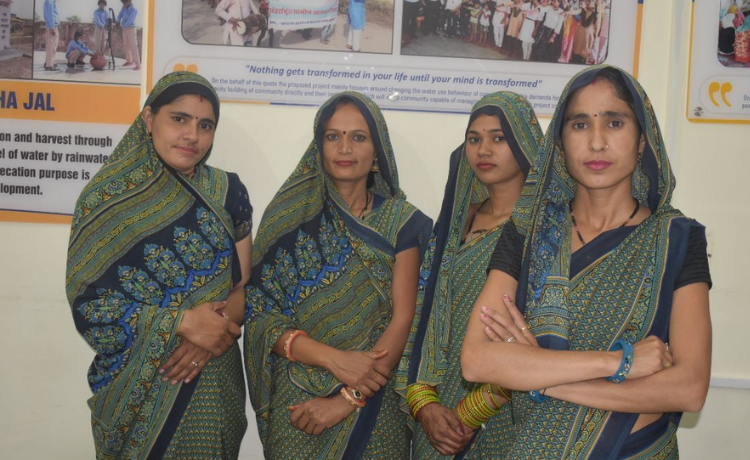CRISIL SROI study confirms that 10X social return from Ambuja Foundation‘s rural development initiatives of water resource management in Chhattisgarh.
Read more

As part of its flagship water stewardship program- Jalashay, Marico Limited, one of India’s leading FMCG companies, has partnered with Ambuja Foundation to launch a sustainable water conservation initiative in the drought-prone regions of Sanand and Viramgam in Ahmedabad district.
Read more
In the heart of rural communities across the globe, the threads of water, health, and agriculture are intricately interwoven—each one reinforcing and depending on the others.
Read more
In a long-term partnership with the Hinduja Group, the Sustainable Water Management Project in Rajasthan has transformed the lives of over 2.74 lakh people across 173 villages in 5 districts over the past 7 years. The adoption of innovative water harvesting techniques, rejuvenation of traditional water bodies, and the implementation of efficient irrigation methods has marked a significant milestone in grassroots water stewardship and environmental sustainability.
Read more
Sun Pharma, a pharmaceutical company in India, in collaboration with Ambuja Foundation, launched an Integrated Water Resources Development and Management Program (IWRDMP) in Dhari taluka of Amreli district, Gujarat. This four-year initiative aims to address the critical water and agricultural challenges faced by farmers and their families across 40 water-scarce villages in Dhari. This initiative is part of Sun Pharma’s broader climate action efforts under its CSR projects.
Read more
As we mark World Earth Day 2025, it’s the perfect moment to spotlight the role of solar energy in transforming rural India—not just environmentally, but socially and economically as well. With climate change looming and traditional resources depleting, clean, alternate and renewable energy isn’t just an ideal—it’s a lifeline. Across villages in India, solar power is reshaping daily life, making communities more resilient, self-reliant, and future-ready.
Read more
Ambuja Foundation, a pan Indian social development organization dedicated to transforming rural communities has successfully undertaken multiple activities to play its part in the ‘Swachhata Hi Seva Campaign’ organized by the Central Government from 17th September to 2nd October. This initiative aims to reignite the spirit of collective action and community participation in cleanliness efforts across India.
Read more
When Ambuja Foundation, Ashok Leyland and Hinduja Foundation joined forces to improve the water situation in 5 villages of Alwar, Eastern Rajasthan, the men of the village denied that water was a problem. Tubewells used for irrigating crops had a 300-400 metre water accessibility and so they felt water was not a high priority.
Read more
Ambuja Foundation, in partnership with Indian Hotels Company (IHCL), have announced the Integrated Water Resource Development Project, an initiative aimed at combating water scarcity and soil salinization in the Gir forest and the coastal zones of Una and Gir Gadhada in Gujarat. This strategic collaboration will implement sustainable solutions that will positively impact the livelihoods of communities in the region.
Read more
Ambuja Foundation convened a pivotal event titled "Sustainable Watershed Management for Climate Resilience" in Shimla, Himachal Pradesh in March 2024. This one-day gathering served as a significant platform to illuminate the prevailing water dynamics in the region, the challenges faced, and underscores the critical nexus between water management and climate change impact.
Read more
In an innovative endeavor to address the pressing issue of water scarcity and to fortify the community's resilience against water-related vulnerabilities, as a part of its CSR initiative, Prince Pipes and Fittings Limited along with Ambuja Foundation has taken a significant stride by launching a comprehensive water harvesting project in Chomu district of Rajasthan. The initiative in association with Prince Pipes and Fittings Limited aims at reviving the non-functional, redundant water bodies, creating new water facilities and rejuvenating groundwater across the location.
Read more
Ambuja Foundation, known for its various efficient water management programs, today announced its partnership with IndusInd Bank to launch the integrated Water Resource Management Program (IWRMP) in the Mahad area of Raigad district in Maharashtra. The collaborative initiative aims to confront and address the various challenges concerning water and agriculture that prevail in nine different villages of the Gandhari Catchments Cluster in the region.
Read more

